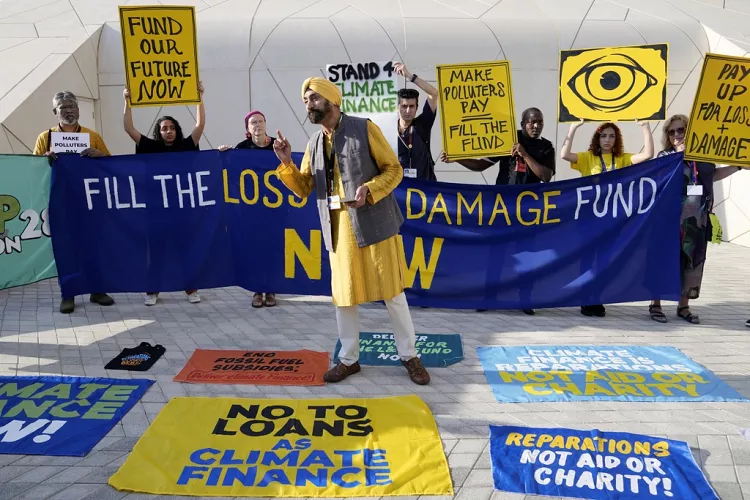On Tuesday, June 13, the climate conference in Bonn, Germany, ended without any concrete progress on climate finance. The results of the negotiations were to become the basis for decision-making at the 29th UN Conference on Climate Change – The 29th Conference of the Parties (COP29) in the capital of Azerbaijan later this year.
This was reported by Euronews.
At the UN climate conference in November this year, countries must make new commitments to climate finance. They must agree on a new collective quantified goal (NCGQ), which is the amount of money that developed countries must mobilize annually, starting in 2025, to support climate action in developing countries. But there are serious disagreements about how much this amount should be, who should be prioritized for funding, what form this money should take, and what country should be considered “developed.”
Therefore, at the Bonn conference, this issue was at the center of discussions. Countries on both sides of the talks expressed frustration halfway through COP29.
There are several "stumbling blocks" in this discussion.
Controversial question #1: Which countries should contribute?
Some, like Norway, argue that countries with high emissions and economic potential, such as China or oil-producing states, should be part of the contributing group. They currently define themselves as developing countries under the Paris Agreement, which means they don't have to contribute money to the funds.
The US is also among the countries that argue that the pool of donors should be expanded at the expense of countries with developing economies.
Controversial question #2: who should receive the funds?
Many developed countries, such as the US, believe that they should go to those most vulnerable to the effects of climate change – least developed countries (LDCs) and small island developing states.
But developing countries say they should all be eligible for funding.
Controversial question #3: Should climate finance be in the form of funds or loans?
Developing countries also argue over what actually constitutes climate finance. They argue that the loans should not be counted against the contributions of developed countries.
A recent report from the Organization for Economic Co-operation and Development (OECD) showed that developed countries had met their pledge of $100 billion (€93.2 billion) a year in 2022, with "the biggest year-on-year increase seen to date". However, 69% of these funds were provided in the form of loans.
Groups including the Alliance of Small Island States (AOSIS) and LDCs say this will only increase the debt burden of the most vulnerable countries.
"In our opinion, it's about justice, it's about reparations, it's about the responsibility of rich countries. And they look at it as another opportunity to make money. The OECD report actually tells you this story," said the climate activist and observer at the press conference Bonn Conference Harjit Singh.
Controversial question #4: Which institution should host a fund for compensation of losses and damages?
After years of debate, COP27 decided in 2022 to establish a Damages and Losses Fund, a financial mechanism designed to provide critical support to vulnerable countries that face the brunt of climate challenges. Last year, countries such as Italy and the Netherlands began contributing to this fund.
While talks continued in Bonn, the World Bank's board on Tuesday approved a plan to act as the interim host of the funds to cover damages and losses. He stated that he will maintain the interim fund for 4 years with a board independent of the bank, which will have its own management structure and control over financial decisions.
But it has also become a point of contention for developing countries, which worry that developed countries, including the United States, which appoints the president of the World Bank, could have too much influence over the distribution of those funds.
What does this mean for COP29?
Given that many important financial decisions will be made at COP29 in Azerbaijan this November, it has already been dubbed the "financial COP". Countries will continue discussions on a new climate finance deal after an agreement on $100 billion is finally reached. The NCGQ is expected to go beyond the initial target, as $100 billion is the lowest amount, and will be based on the real needs of countries affected by the change climate
Previously, EcoPolitic wrote about why the Bonn Conference on Climate Change is Important.





